Literary Terms
1/170
There's no tags or description
Looks like no tags are added yet.
Name | Mastery | Learn | Test | Matching | Spaced | Call with Kai |
|---|
No analytics yet
Send a link to your students to track their progress
171 Terms
Abstract/Concrete
Abstract refers to ideas or concepts that are not tangible, while concrete refers to physical objects or specific instances.
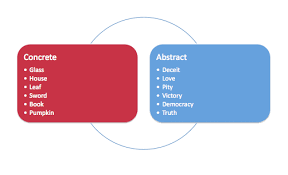
Allegory
A narrative that uses symbolic figures and actions to convey deeper moral or political meanings. It is a symbolic narrative that conveys a meaning not explicitly set forth in the narrative—it can be interpreted to reveal a hidden meaning.
Alliteration
The repetition of the initial consonant sounds in a series of words.
The occurrence of the same letter or sound at the beginning of words.
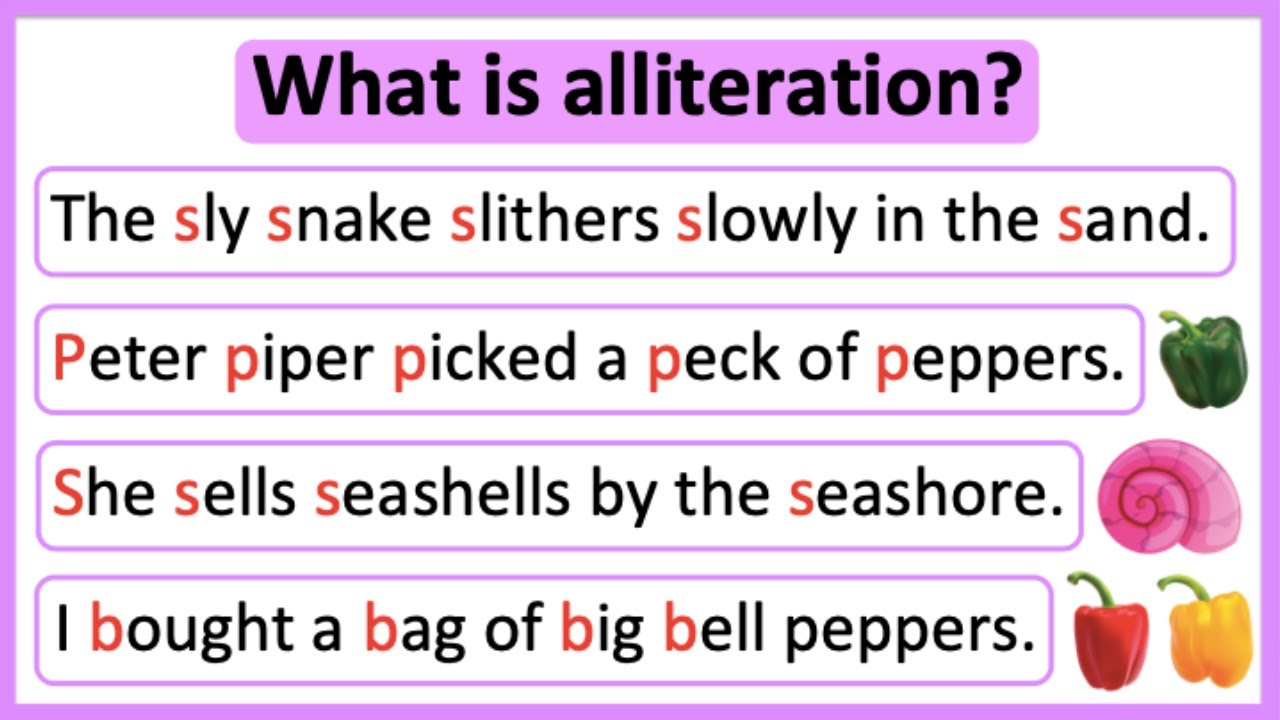
Allusion
An indirect reference to a person, event, or literary work.
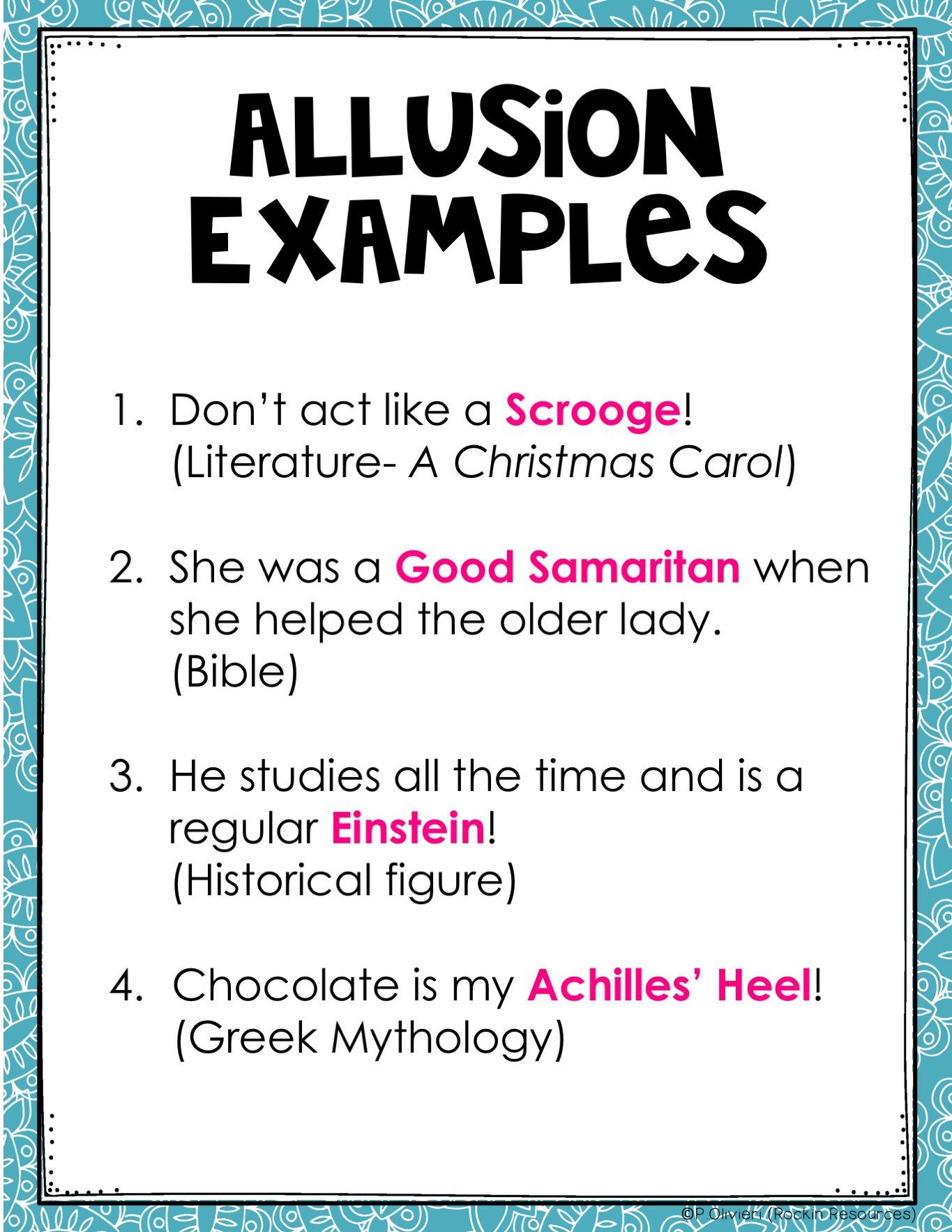
Ambiguity
A stylistic device that allows the narrative to be open to multiple interpretations or meanings.
It involves using language in a way that creates uncertainty about the meaning, often to add depth or complexity.
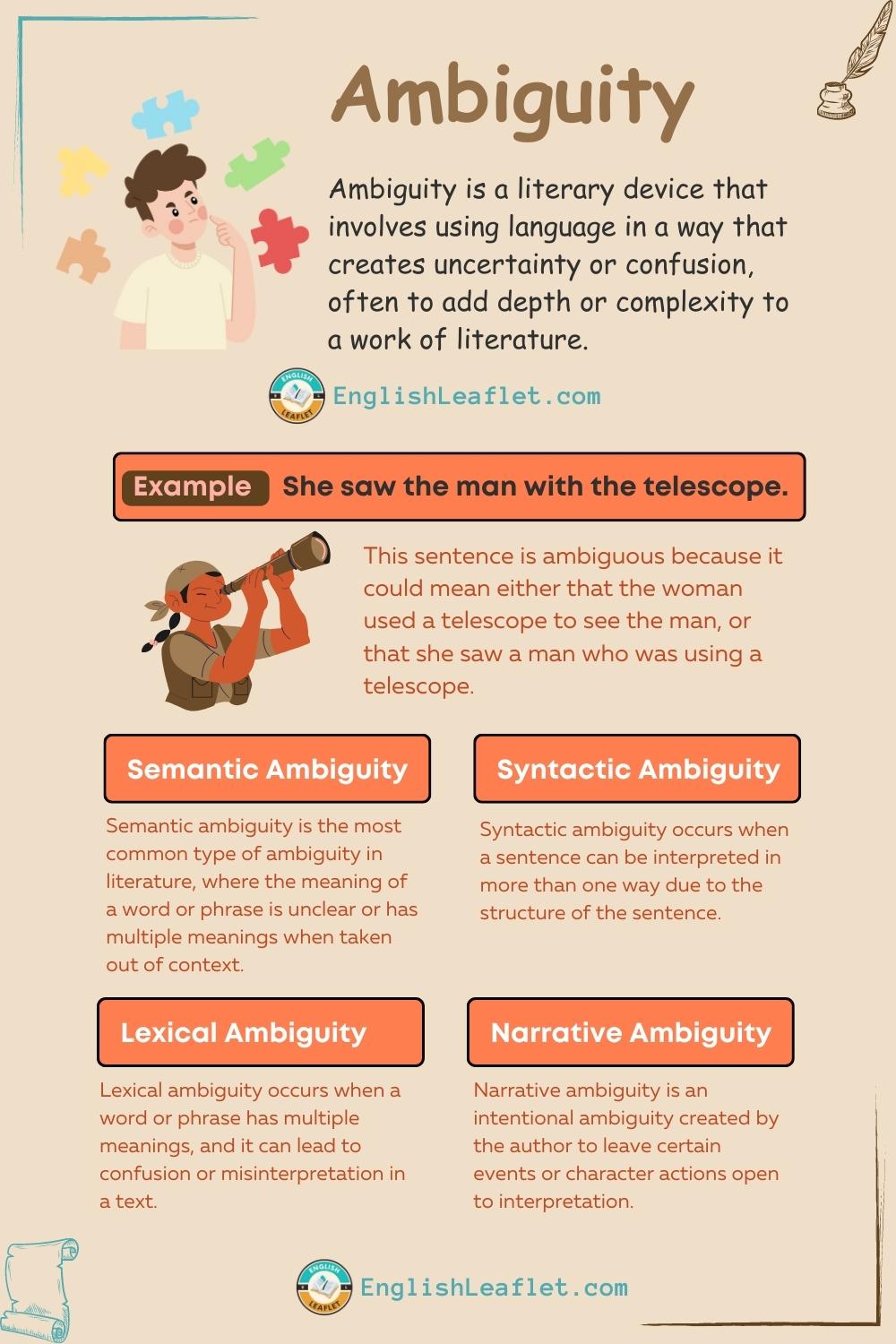
Anachronism
An error in chronology (a chronological inconsistency); when an event, person, item, or language expression is placed in the wrong time period.
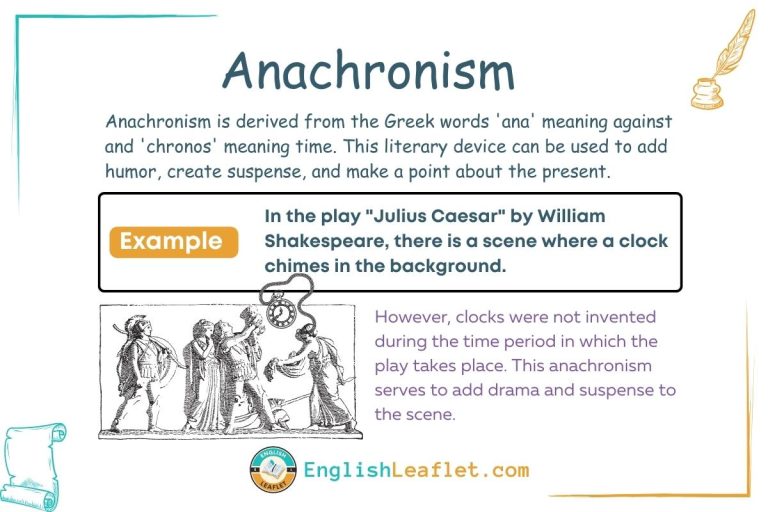
Analogy
A comparison between two different things to highlight similarities, explain an abstract idea, make an argument, or add imagery.
Anaphora
The repetition of a word or phrase at the beginning of successive clauses or sentences.
Antagonist
A character or force that opposes the protagonist in a narrative.
Antanaclasis
A rhetorical device involving the repetition of a word or phrase within a sentence, but the word/phrase means something different each time it is repeated. It is a special form of pun.
EX: "We must all hang together, or assuredly we shall all hang separately." In this example, the first time "hang" appears it means "stay" or "stand," while the second time it refers to being "hanged."

Antecedent
The word, phrase, or clause that a pronoun refers to. A noun phrase that a noun refers to.
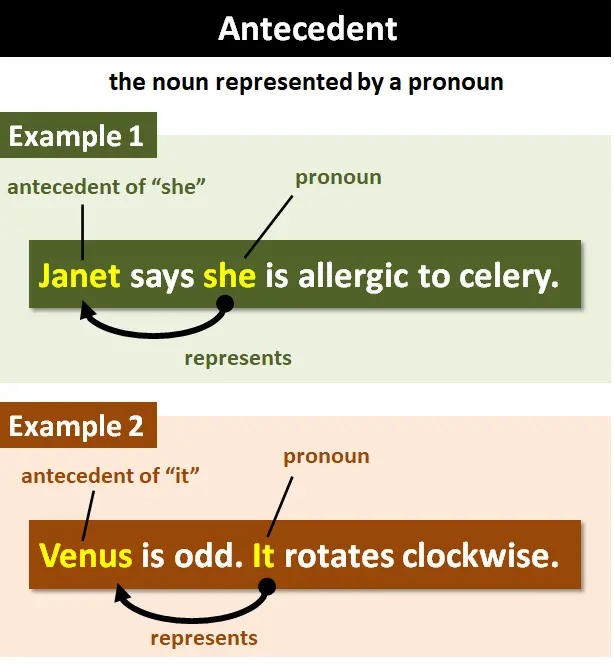
Anticlimax
A moment of tension that is dramatically undercut instead of receiving a payoff.
A disappointing end to an exciting or impressive series of events.
Antihero
A central character who lacks conventional heroic attributes.
Antimetabole
The repetition of words in successive clauses in reverse order.
EX: “Fair is foul, and foul is fair.”
“I mean what I say, and I say what I mean.”
Antithesis
The rhetorical contrast of ideas by means of parallel arrangements of words, clauses, or sentences.
**opposing ideas and parallel arrangement. ABAB
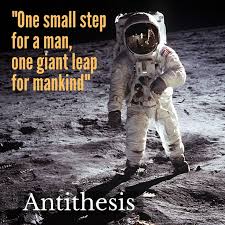
Aphorism
A short/concise/brief phrase that expresses an important truth about life.
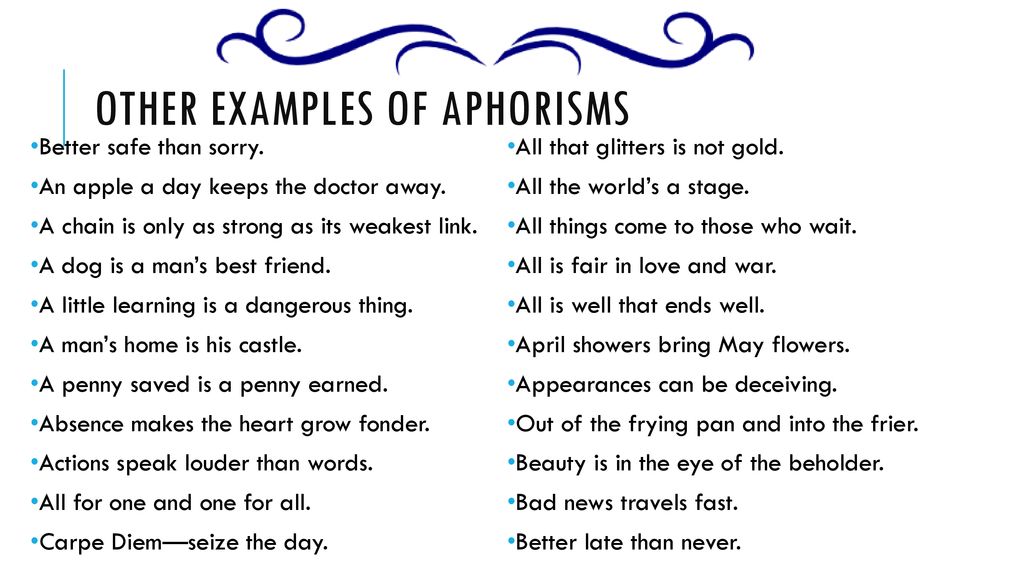
Apostrophe
A figure of speech in which a speaker addresses an absent, dead, or non-human person or thing that is not present.
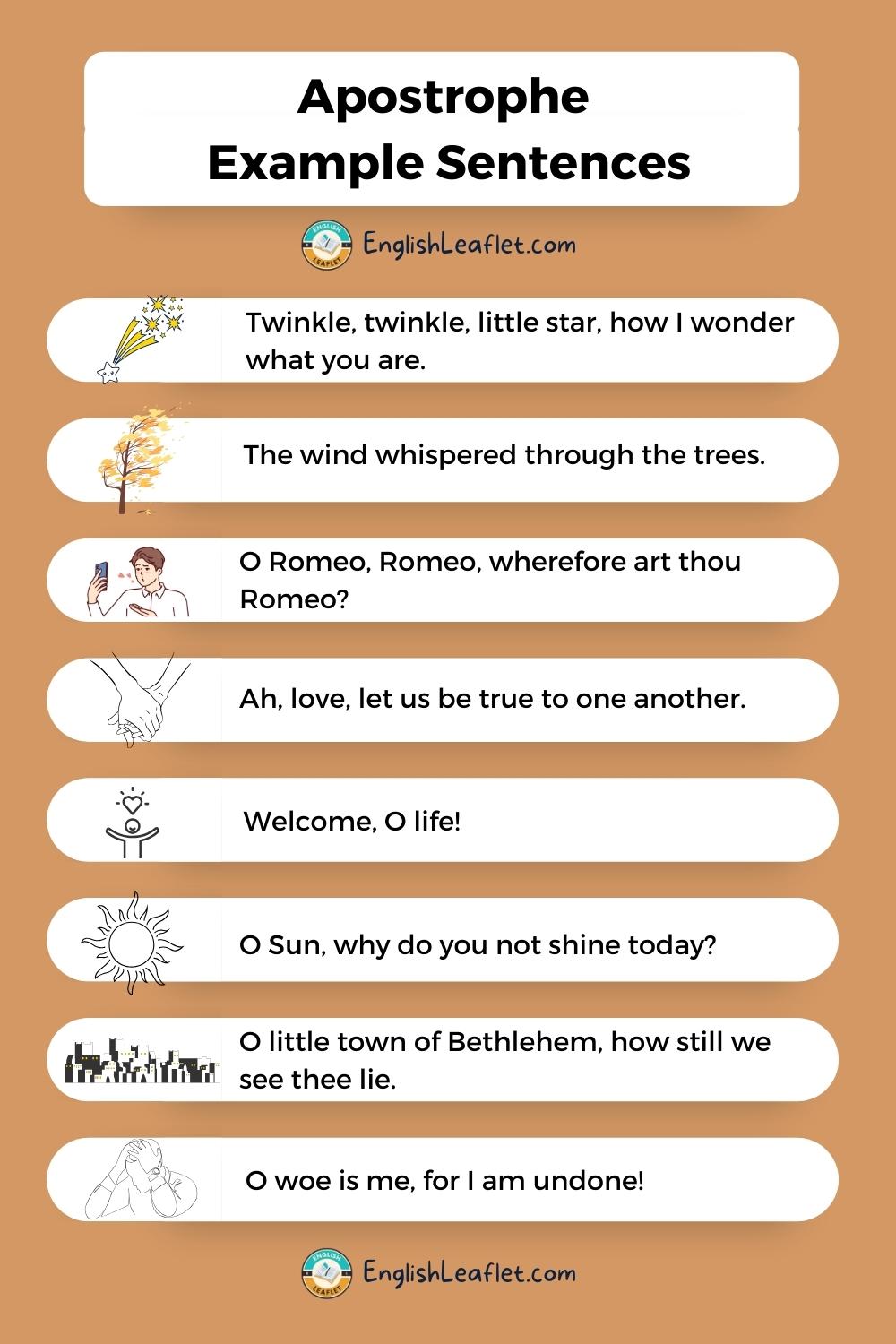
Apotheosis
The elevation of a character to divine status/ to the rank or status of a god.
Archetype
A typical example of a character, theme, or situation in literature.
A character, pattern, or symbol that is so common that it is considered a universal concept.
It is commonly reoccurring.
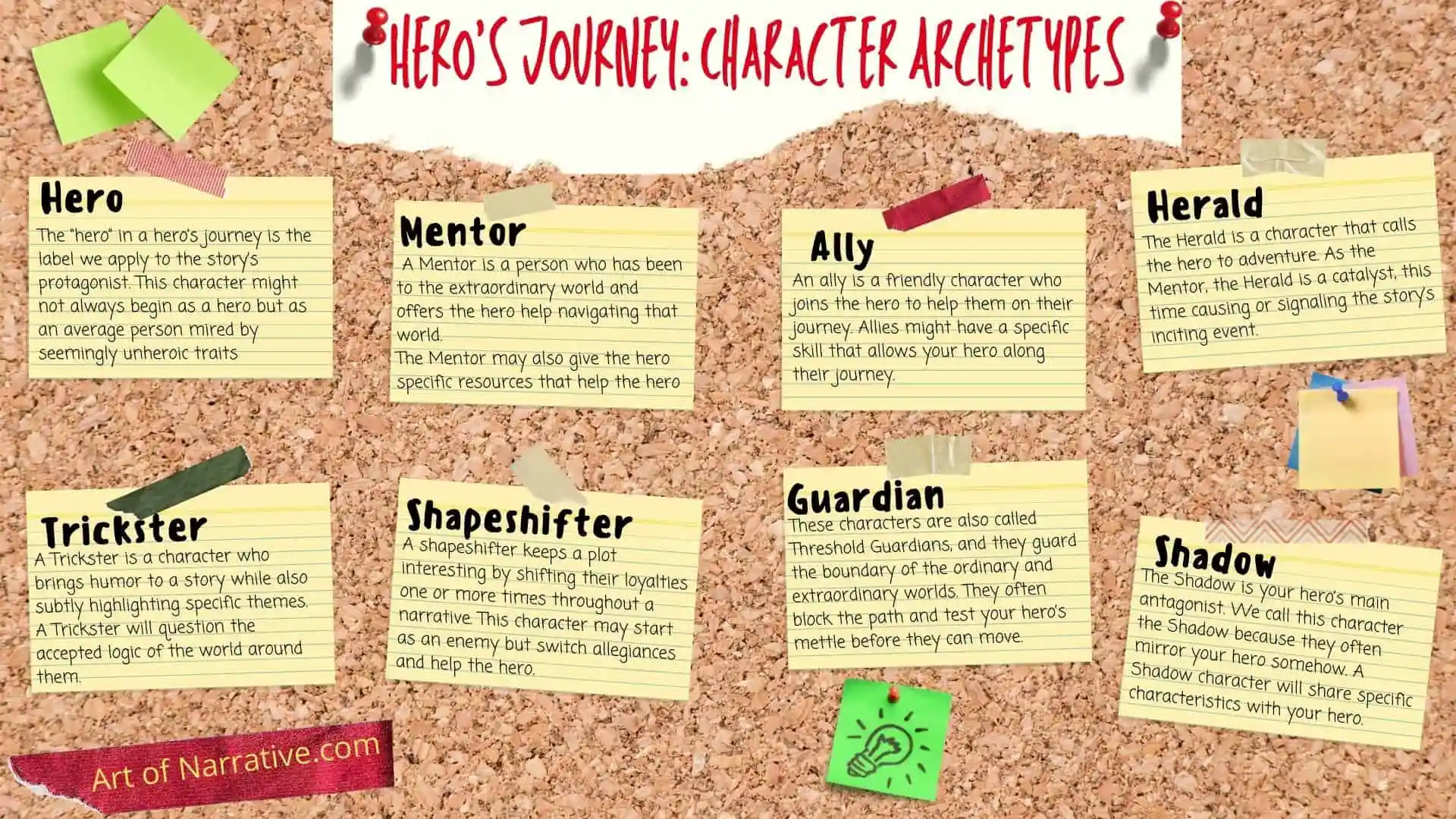
Asyndeton
The intentional omission of conjunctions between parts of a sentence. Used to create emphasis, rhythm, tone, etc.
EX: “I came, I played, I won.”
“I came, I saw, I conquered.”
“We met, we got engaged, we married.”
Aside
A remark made by a character that is intended to be heard by the audience but not by other characters.
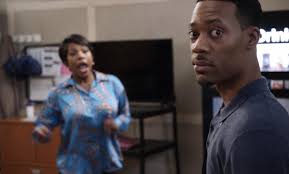
Assonance
The repetition of vowel sounds within nearby words.
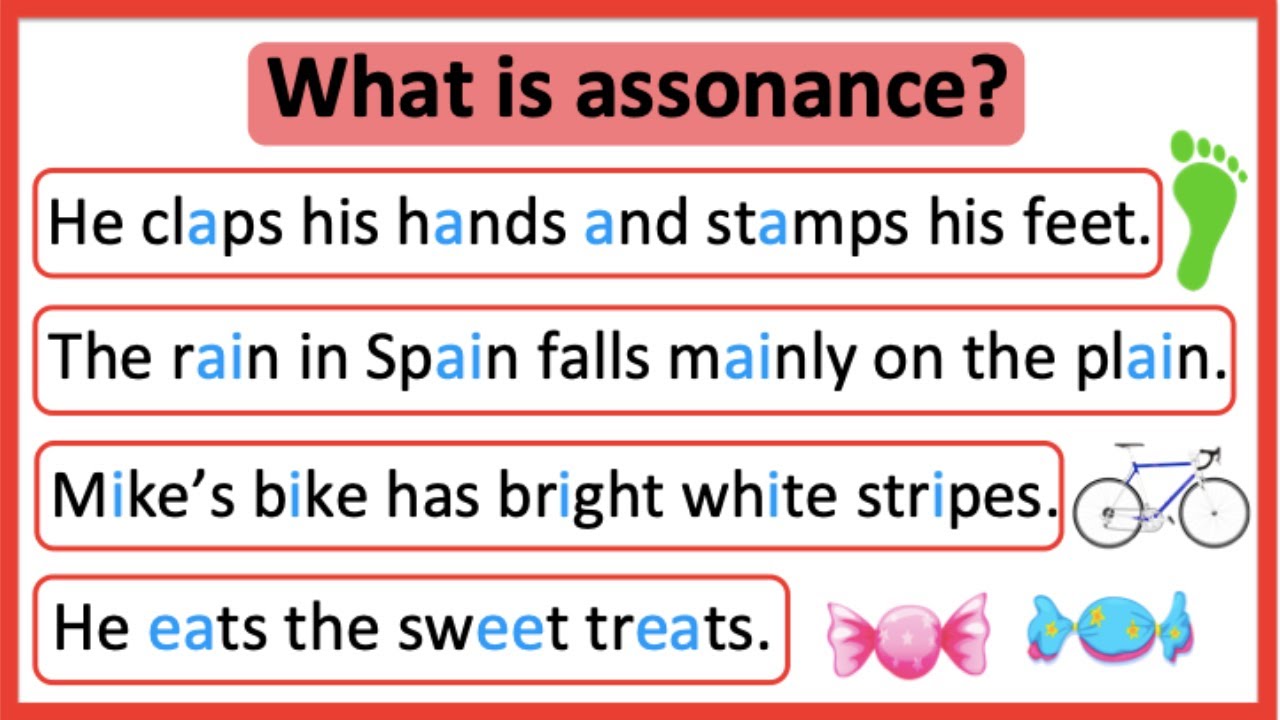
Aubade
A poem or piece of music appropriate to the dawn or early morning.
A song or poem greeting the dawn.
Ballad
A narrative poem that tells a story, often in a musical form.
Bildungsroman
A coming-of-age story that focuses on the psychological and moral growth of the protagonist from youth to adulthood.
Blank Verse
Unrhymed iambic pentameter.
Byronic
Relating to the characteristics of the romantic poet Lord Byron, often featuring a brooding, rebellious hero.
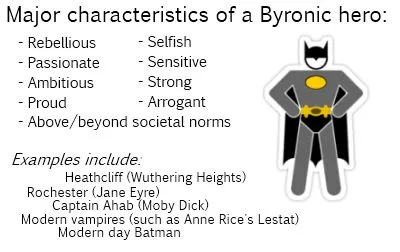
Cacophony
A harsh, discordant mixture of sounds. Describes a blend of unharmonious sounds.
Caesura
A pause in a line of poetry, often marked by punctuation.
Caricature
An exaggerated portrayal of a character or situation for comic effect.
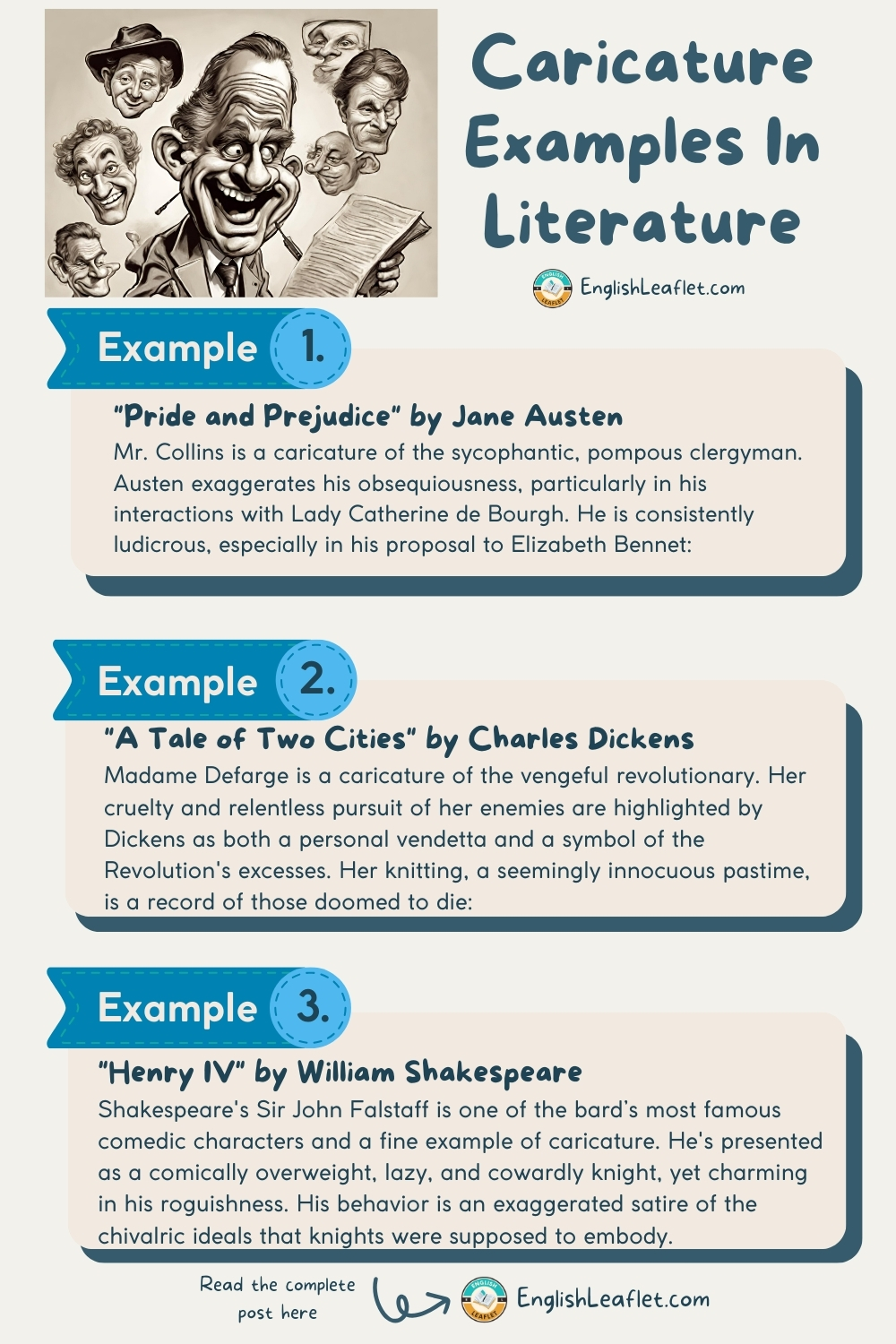
Catharsis
The emotional release or purification experienced by the audience.
The use of strong feelings in literature to engage the reader in a type of emotional purification.
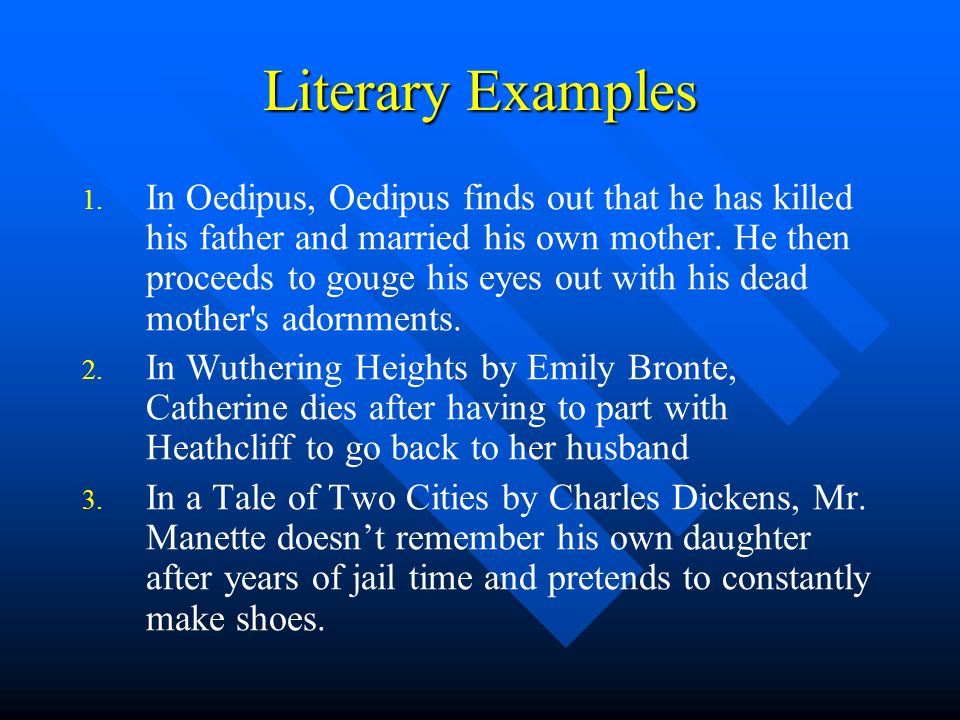
Characterization
The methods used to develop a character's personality and traits.
Chiasmus
A rhetorical device in which the grammatical structure/syntax are repeated in reverse order. ABBA arrangement. The words DO NOT repeat.
EX: “Despised if ugly; if she’s fair, betrayed.”
“Adam, first of men; To first of women, Eve.”
Clause
A group of words containing a subject and a predicate.
Climax/Crisis
The turning point or moment of greatest intensity in a narrative.
Colloquial
Informal language or expressions used in everyday conversation.
A literary device often used by authors as a way to convey personality and authenticity to characters.
Complex Sentence
A sentence that contains one independent clause and at least one dependent clause.
Compound Sentence
A sentence that contains two or more independent clauses joined by a conjunction.
Compound-Complex Sentence
A sentence that contains at least two independent clauses and one or more dependent clauses.
Conceit
An extended metaphor that makes a surprising connection between two seemingly dissimilar things. Often far-fetched to deepen a writer’s meaning.
EX: “Life is a bowl of cherries.”
“A broke heart is like a damaged heart.”
“
Confessional Poetry
A style of poetry that reveals the poet's personal thoughts and feelings.
Conflict
The struggle between opposing forces in a narrative. (does not mean conflict between two people; there’s all different types of conflicts)
Consonance
The repetition of consonant sounds within or at the end of words in a phrase.
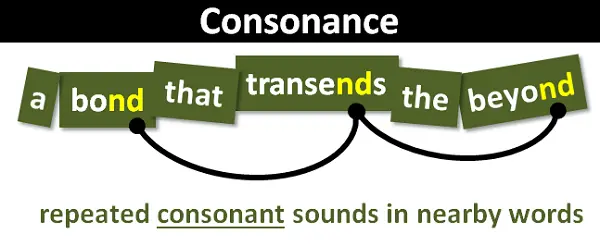
Conventional Character
A character that follows established stereotypes or norms.
Connotation
The implied or associated meaning of a word beyond its literal definition. Can be positive, negative, or neutral.
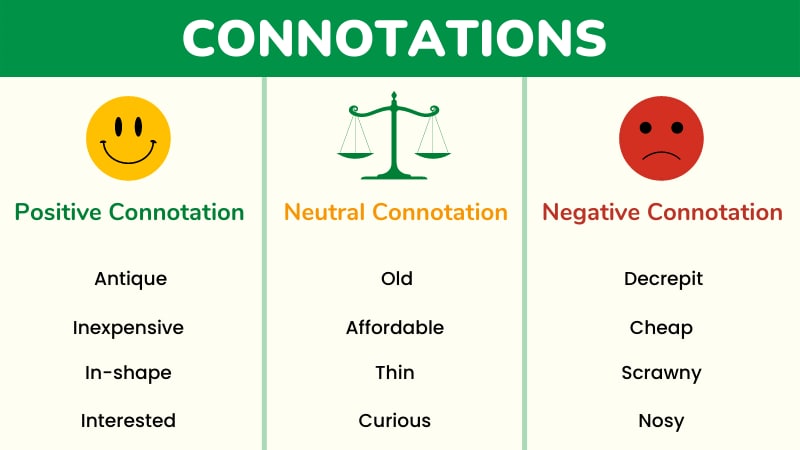
Couplet
A pair of rhyming lines in poetry.
Decasyllabic Lines
Lines of poetry that contain ten syllables.
Denotation
The literal or primary meaning of a word.
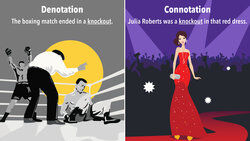
Denouement
The final resolution or outcome of a story.
Deus Ex Machina
A plot device used when a seemingly unsolvable conflict or impossible problem is solved by the sudden appearance of an unexpected person, object, or event.
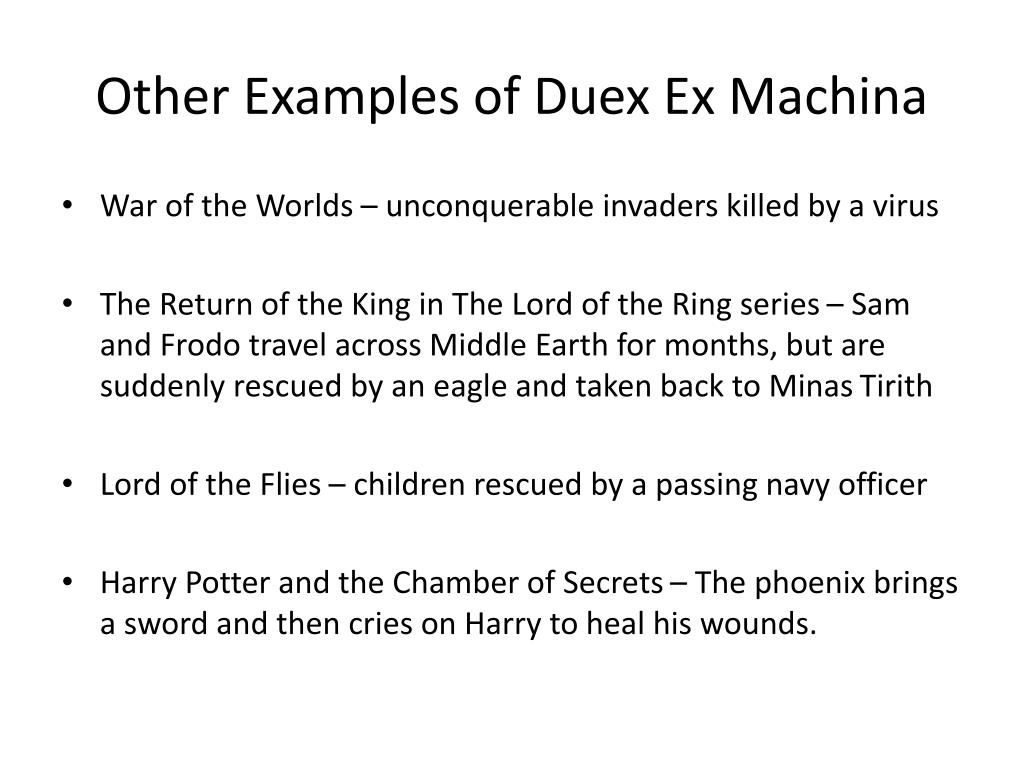
Dialect
A particular form of a language specific to a region or social group.
Diction
The choice of words and style of expression in writing.
Didactic
A poem intended to teach or instruct, often with a moral lesson.
Direct Speech
The exact words spoken by a character, often enclosed in quotation marks.
Dissonance
A lack of harmony or agreement between things/ sounds or rhythms to create a disturbing effect.
Distortion
A literary device that twists, exaggerates, changes, something from what it actually is. It is altered in a way that makes it appear different from reality.
Elegy
A poem of serious reflection, typically a lament for the dead.
End-stopped
A line in a poem that pauses at the end or contains a complete phrase or sentence.
Enjambment
A poetic term for the continuation of a sentence or phrase from one line of poetry to the next.
Epic
A long narrative poem recounting heroic deeds of a hero or group of heroes.
Epigram
A short, witty but insightful saying or poem that expresses an idea, single thought, observation.
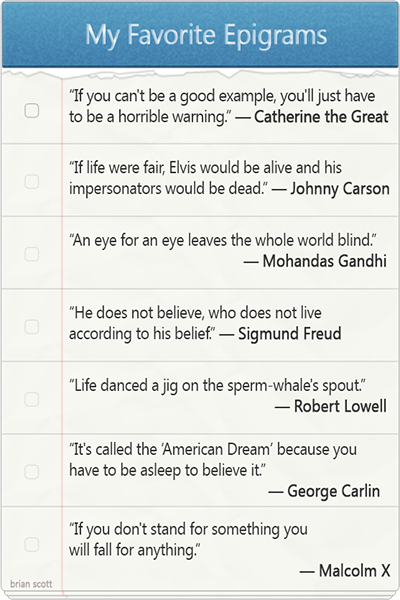
Epigraph
A short quote included at the beginning of a piece of writing. Meant to introduce the reader to a theme, reference, create context, or expose important information.
Epiphany
The moment when a character is suddenly struck with a life-changing realization which changes the rest of the story/ alters their understanding of themselves or the world around them.
Epistolary novel
A work of fiction that is written in the form of letters or other documents such as diaries, emails.
Epistrophe
A literary device involving the repetition of a word or phrase AT THE END of sentences or clauses.
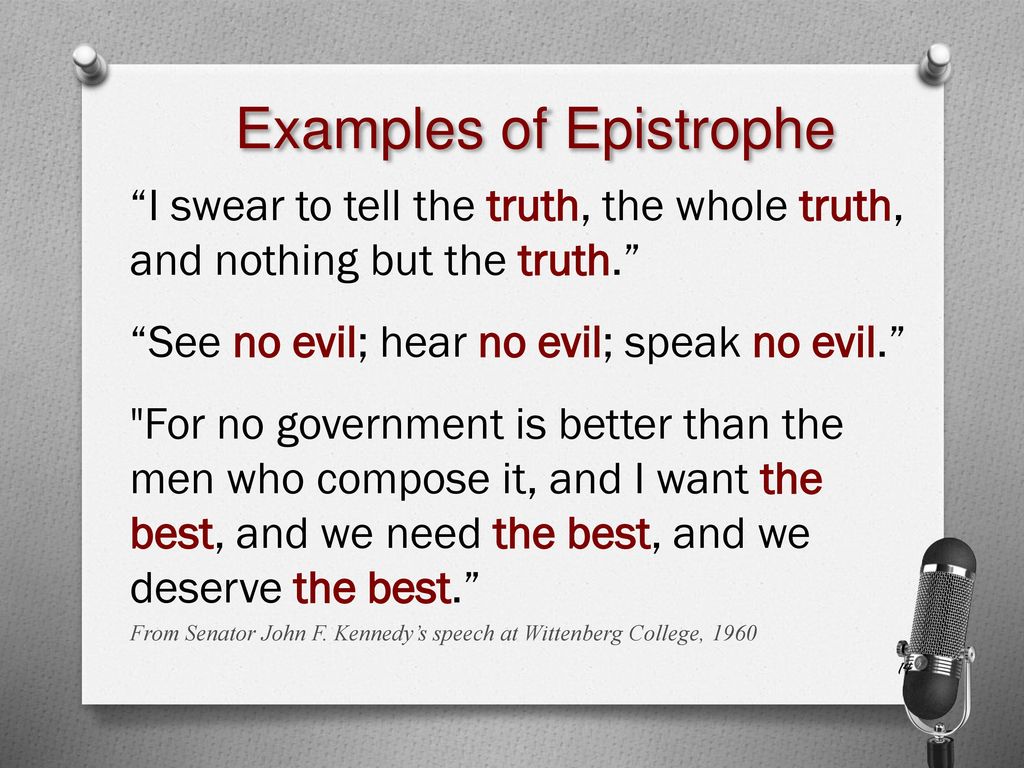
Epithet
A literary device that describes a person, place, or object by accompanying or replacing it with a descriptive word or phrase.
EX: “star-crossed lovers” = romeo and juliet
“The Rock” = Dwayne Johnson
Gray-eyed athena
Earth-shaking poseidon
“Lord of the clouds” = Zeus
“Raider of cities” = Odysseus
Ethos
A rhetorical device that focuses attention on the writer’s or speaker’s trustworthiness. Used to persuade readers by appealing to their moral values. Used to demonstrate their authority, trustworthiness, and expertise to persuade.
“Appeal to character” or “Appeal to credibility”
Euphemism
A word or phrase used to describe something unpleasant, impolite, or taboo.
EX: “I’m going to have to let you go” instead of “You’re fired.”
“I’m on a budget.” instead of “I’m poor.”
“She passed away.” instead of “She died.”
Euphony
A series of words/ the combining of words to create a pleasing sound. The use of pleasant or agreeable sounds.
Exposition
The introduction or beginning of a story that reveals important background information such as the setting and characters.
Fable
A short, simple story/tale told to convey a moral, or lesson to the reader about how to behave in the world.
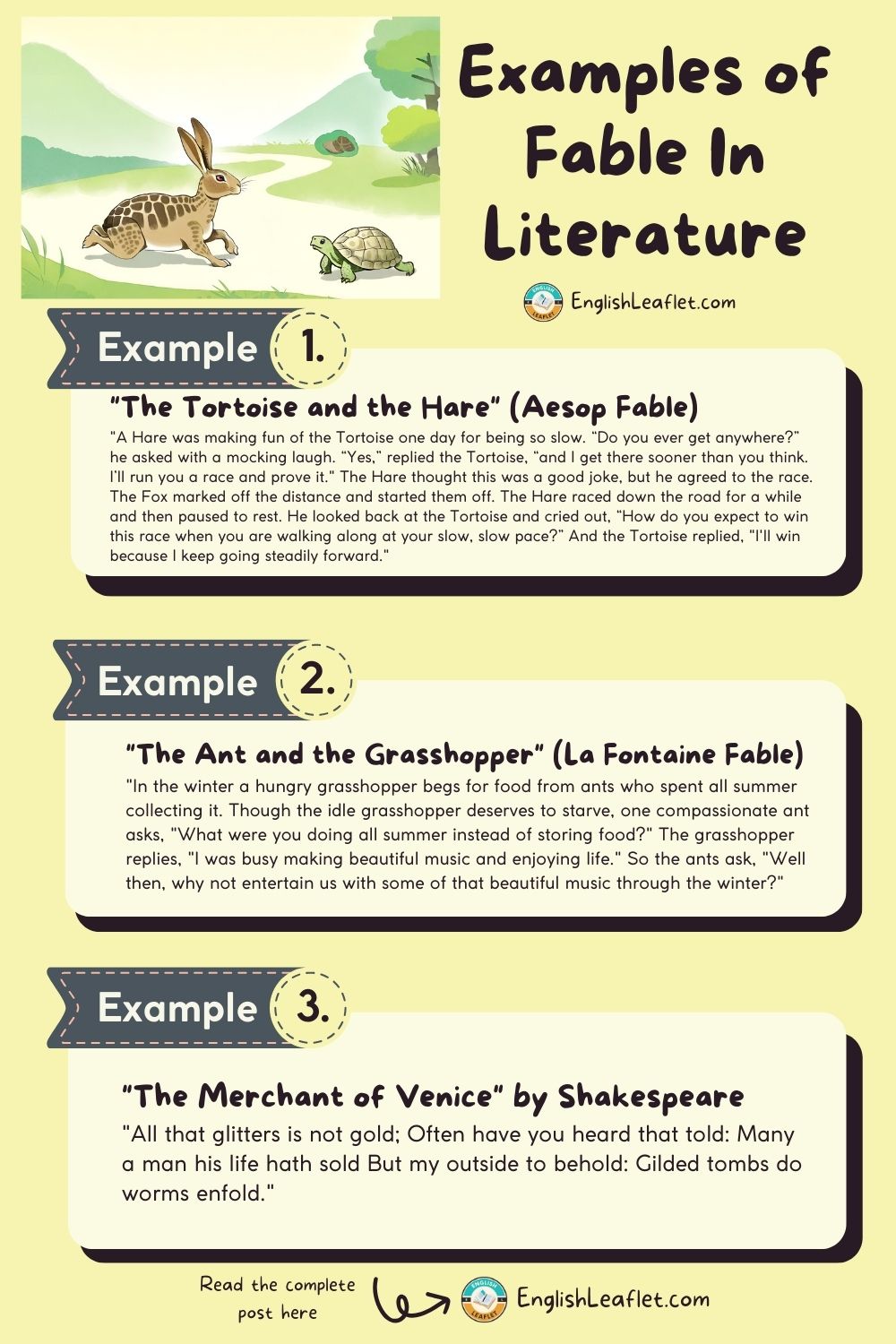
Farce
A type of comedy in which everything is absolutely absurd. Uses improbable situations, exaggerated characters, and physical humor to create humor.
Figurative Language
A literary device that uses words or phrases that deviates from their literal interpretation to convey a message.
Flashback
An instance that interrupts the chronological order of the plot in order to provide context or information by showing a past event.
Flat Character
A character that is one-dimensional, that lacks complexity, personality or depth. Doesn’t change throughout the story.
Foil
A character who contrasts with the main character in order to highlight the main character’s attributes.
Foreshadowing
A narrative device that gives the audience hints or signs about the future.
Free Indirect Speech
A technique of presenting a character’s voice partly mediated by the voice of the author. The character speaks through the voice of the narrator with their voices merged.
Combines first and third person perspectives to narrate a character’s thoughts.
Free-verse
Type of poetry that doesn’t use any strict meter or rhyme scheme.
Genre
The classification of a literary work by its form. content, and style into categories.
Heroic Couplet
A rhyming couplet, or pair of lines with end rhymes in iambic pentameter.
Hubris
Excessive pride in a character, which leads them to act foolishly or rashly, leading to a character’s downfall.
Hyperbole
A literary device that uses exaggeration to emphasize a point or create a comic effect (rhetorical effect)
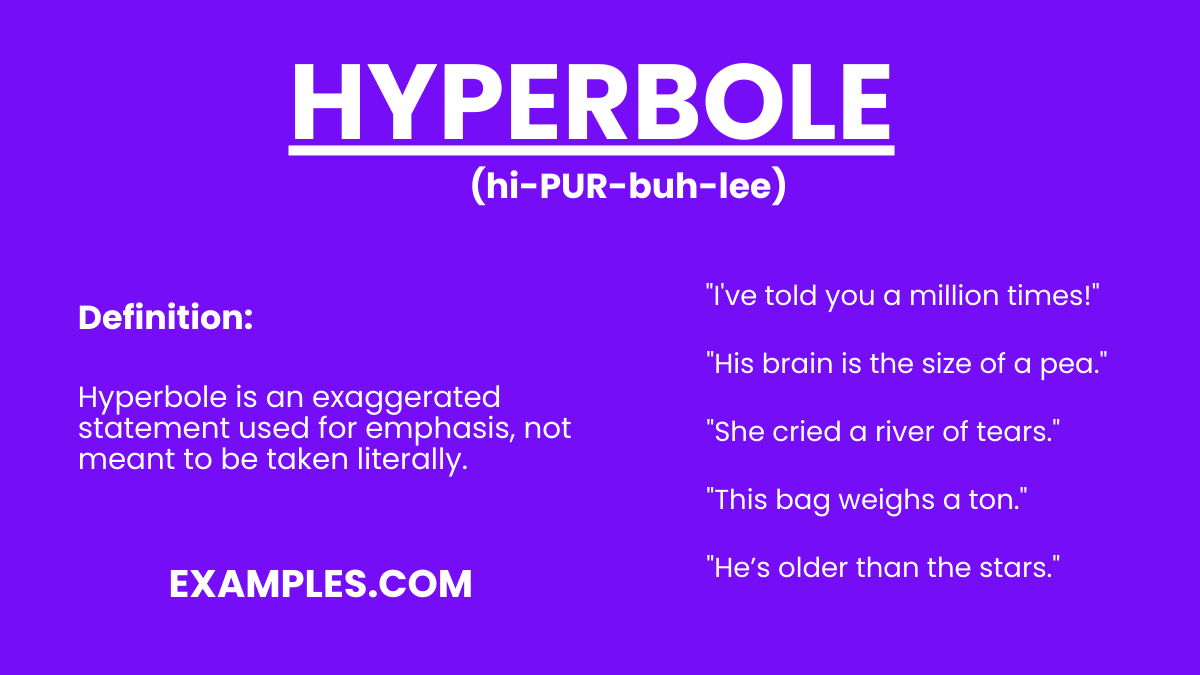
Idiolect
An individual’s unique way of using language including. It is the language or speech pattern of one individual.
Imagery
A literary device that uses vivid description that appeals to a reader’s senses to create a mental image.
Imperative Sentence
A sentence that expresses a direct command, request, invitation, warning, or instruction. They do not have a subject. Instead it is given to an implied second person.
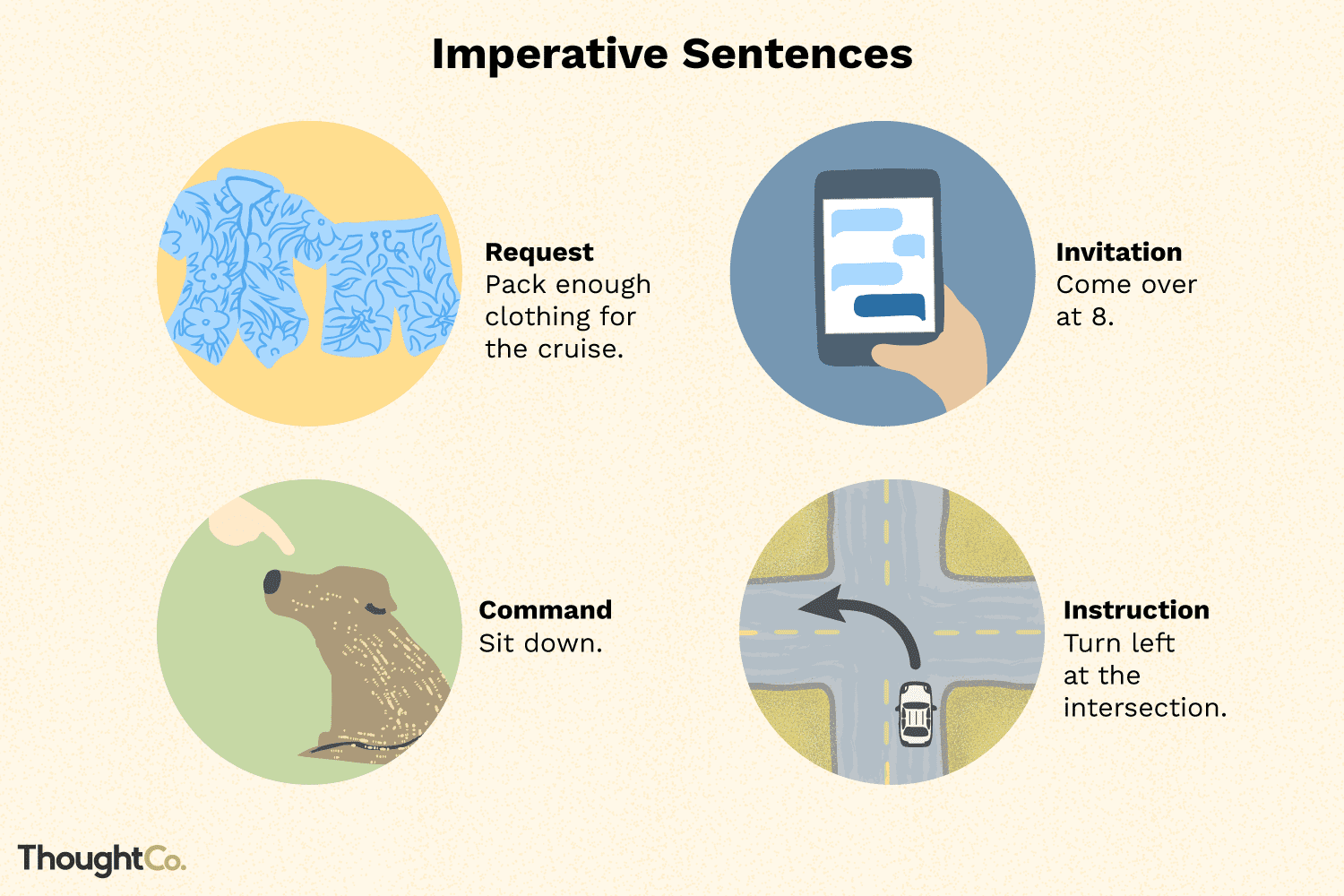
In media res
A story that begins partway through its plot, with the missing events filled in later through dialogue, flashbacks, or other techniques.
Interior Monologue
A narrative technique that exhibits the thoughts, feelings, and associations passing through a character’s mind. The expression of a character’s thoughts, feelings, impressions, etc.
Interrogative Sentence
A sentence that asks a question and ends in a question mark.
Intrusive Narration
When the narrator interrupts the story to provide a commentary to the reader on some aspect of the story or on other topics.
Inversion
A literary technique that changes up the order of the words so that particular qualities or terms can be emphasized.
There’s different types of inversion.
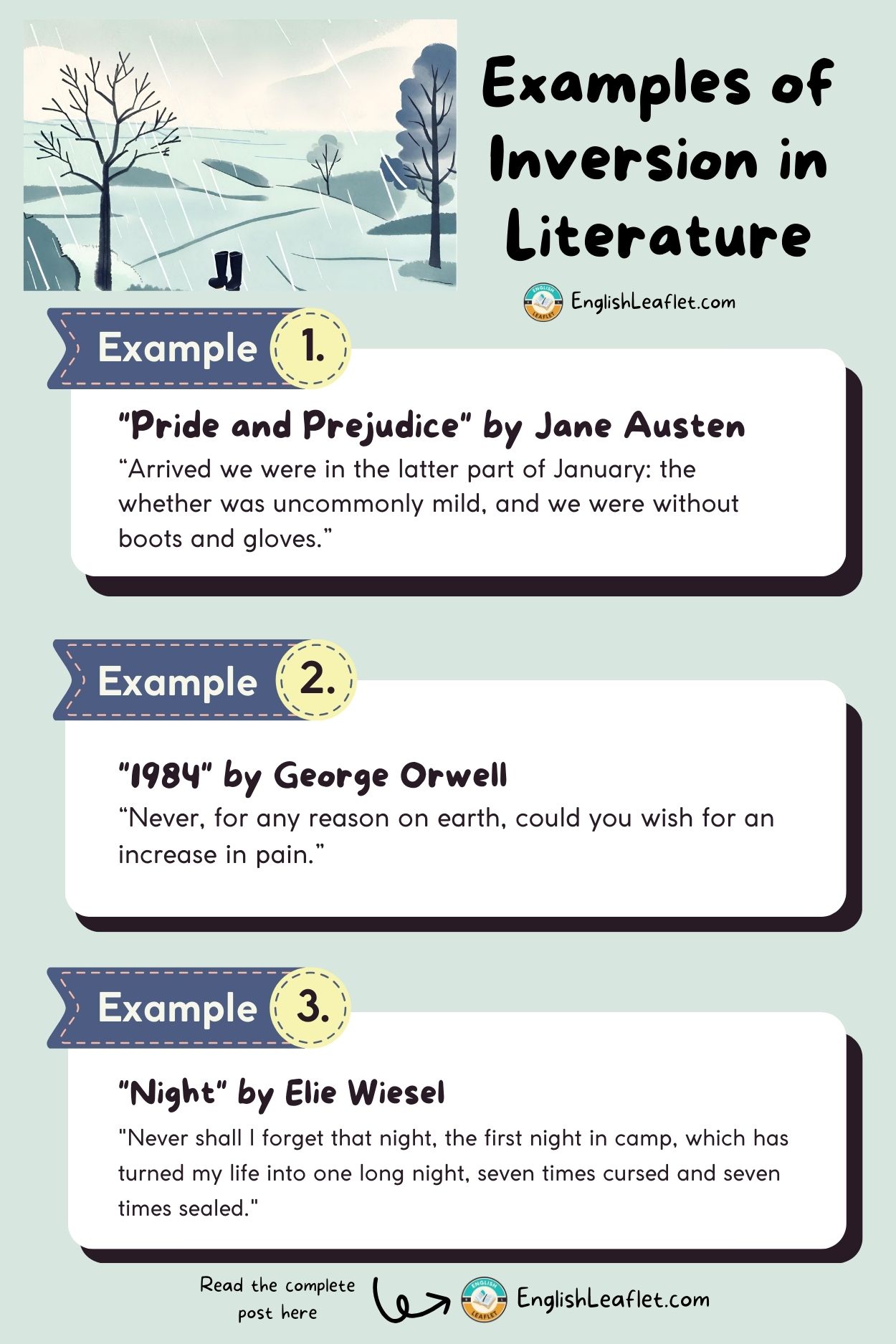
Irony
A situation where there is a contrast between reality and expectations.
Lexis
The vocabulary of a language. Includes all the words of a language.
Litotes
A literary device where the affirmative is expressed by the negative of the contrary, making it seem worst than it actually is Has to have a negative word. Used for exaggeration.
EX: Saying a coffee isn’t that bad when you mean it is alright or good
Scenario: He is the most gorgeous man in the universe.
Litotes ex: He’s not hideous or He’s no ogre.
Logos
The use of evidence and reasoning to persuade the reader to support the argument. It appeals to an audience’s sense of logic or reason.
Loose Sentence
A type of sentence structure that places the main clause at the beginning and then adds one or more clauses or modifiers. The independent clause is at the beginning.
EX: “The old man walked slowly down the street, his cane tapping rhythmically on the pavement, his eyes taking in the familiar sights of his neighborhood."
the main sentence is “the old man walked slowly down the street” and the rest is details about how he walks.
“She arrived at the party, full of excitement and ready to dance, eager to see her friends."
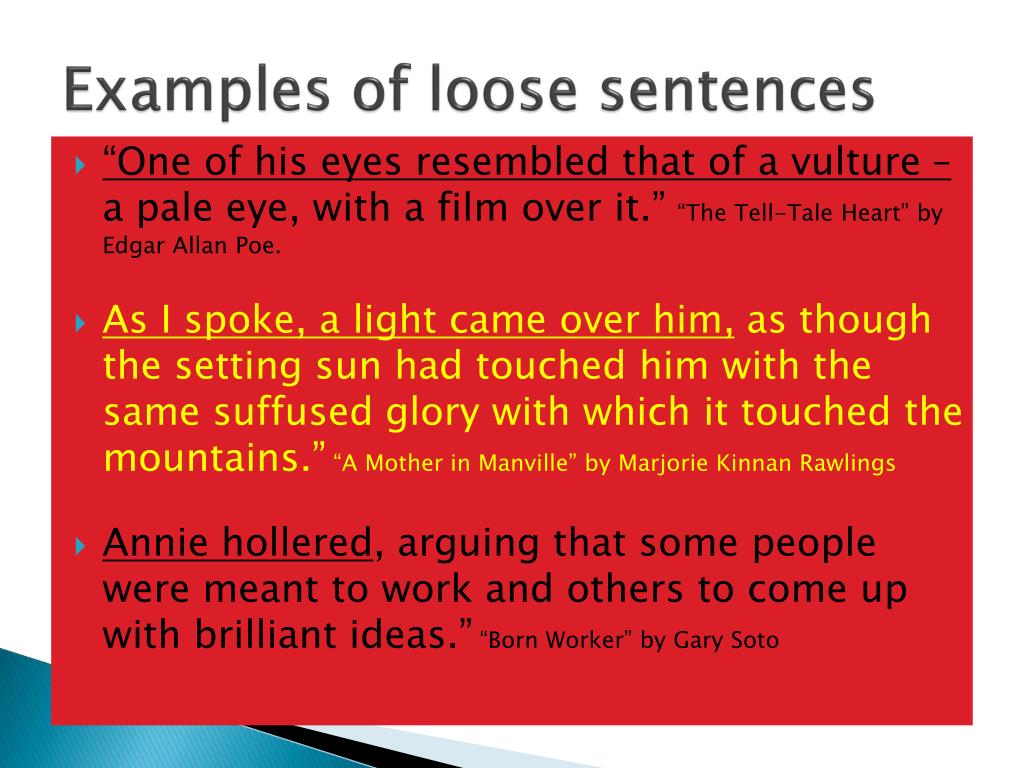
Lyric Poetry
A type of poem that expresses the speaker’s emotions/feelings/thoughts in a short poem with songlike qualities.
Metaphor
A figure of speech that compares two unlike things without the use of like or as.
Meter
Describes the rhythm (or pattern of beats) in a line of poetry. It is the combination of the number of beats and the arrangement of stressed and non-stressed syllables in each line.
Metonymy
A figure of speech in which the name of an object or concept is replaced with a word closely related to or suggested by the original.
EX: “Crown” refers to a king or queen.
“Press” refers to journalists.
“Hand” refers to helping.
“Suits” refers to businessmen.